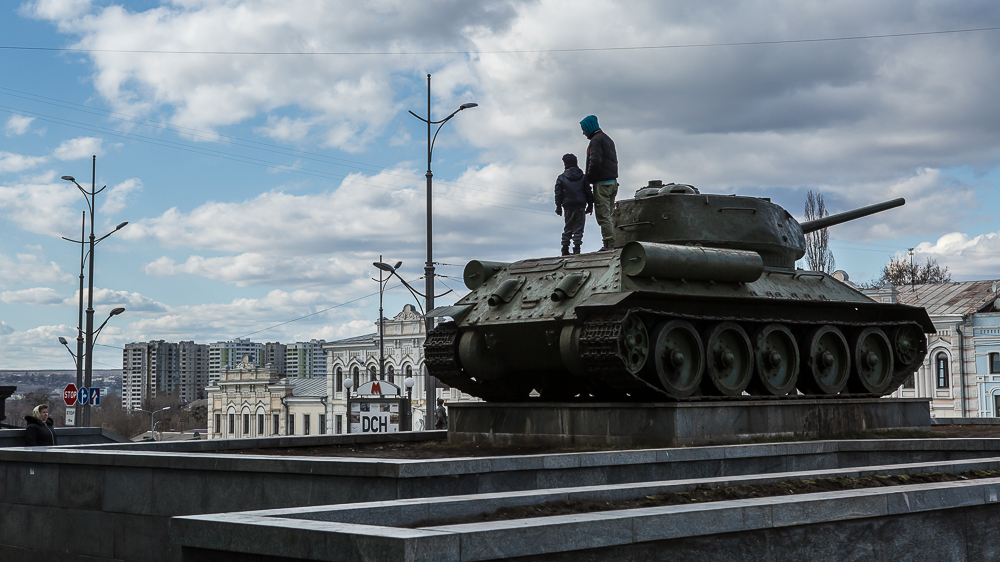Ukraine's pro-Russian city of Kharkiv still mistrustful of Kiev
Companies, agencies, institutions, etc
Kharkiv
Party of Regions
Al Jazeera
Borodovka
Skyba-Yakubova
Army
People's Republics'
the European Union
Karazin University
the American Chamber of Commerce
The National Anti-Corruption Bureau
NABU
norm]."Ukraine
Al Jazeera's
Tamila Varshalomidze
Al Jazeera News
Al Jazeera Media Network
People
As Kiev
Viktor Yanukovich
Andrii Borodovka
Maidan
NATO.Elena Olenchenko
Serhii Maliutin
Petro Poroshenko
Skyba
Yulia Tymoshenko
Volodymyr Zelensky
Groups
Ukrainian
Russian
Borodovka
Ukrainians
Ukranian
Physical locations
Europe
Crimean Peninsula
Places
Independence Square
Locations
Kharkiv
Ukraine
Russia
Kiev
Maidan
Donetsk
Luhansk
Moscow
Odessa
Yenakiieve
Events
No matching tags

Summary
Kharkiv, Ukraine â There has long been a sense of separation in Ukraine, with the east closer to Russia and the west having more affinity with Europe. In Kharkiv, that split deepened five years ago.As Kiev celebrated the overthrow of the country's pro-Russian President Viktor Yanukovich in 2014, a large portion of people in Kharkiv - just 30km from the Russian border - felt threatened.Pro-European demonstrations born in 2013 on Kiev's Independence Square - known as the Maidan protests - were copied in the country's second-largest city, but the crowds were never more than about 300 people.In contrast, a sprawling pro-Russian protest camp occupied the central square in 2014 with Russian flags on display."Many Kharkiv residents took it (the removal of Yanukovich) as a coup because more than 60 percent of the population [of Kharkiv] traditionally supported his Party of Regions," said Andrii Borodovka, journalist and Kharkiv resident who took part in anti-Maidan protests in the city in 2014."When there was a change of government in Kiev, many people [in Kharkiv] saw it as a threat. Even three years later, I would see a woman in the underground train and think maybe you were the one kicking kids."The differences that led to the split in the society in many parts of Ukraine do not seem to have been addressed.Many Ukrainians, especially those living closer to the Russian border, feel that the government in Kiev does not understand how the conflict with Moscow hurts its population, for the sake of forging closer ties with the European Union and NATO.Elena Olenchenko, a pensioner who took part in anti-Maidan protests in 2014, told Al Jazeera: "I don't think our government has our interests at heart.
As said here by Tamila Varshalomidze